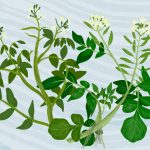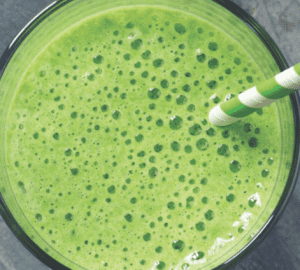
Five ways to boost your immune system
All commercially run open water swim venues should test water and meet the minimum standards for cleanliness defined by the EU. In addition, guidelines recommend all swim race venues should run four separate tests for water quality on three separate parts of the course. On the whole, this makes organised swimming pretty safe but water quality can change quickly (especially in rivers) and obviously most open water is not regulated in this way. In the UK, the National Health Service suggests swimmers need to be careful of several potential causes of infection. These include blue-green algae which can lead to ‘skin rashes, stomach upsets and sore eyes’, leptospirosis, swimmers’ itch from parasites that live on water snails and other water-borne infections such as E. coli from sewage and contaminated water.
Your first line of defence is to avoid swimming in dirty water, try not to drink the water you’re swimming in, cover up any cuts and shower thoroughly afterwards. In particular, don’t eat before washing your hands.
However, swimming itself can weaken our immune system. While exercise is most definitely good for us (even one session of six minutes boosts immune function), if we over-train, don’t allow enough time for recovery, live stressful lives and don’t sleep enough, we can become run down. This happens because of a reduction in the number of infection fighting white blood cells in our bodies.
The good news though is that nutrition can help keep our immune systems in good shape, so let’s look at some of the things we can eat to keep us healthy.
Yeast
One thing to add to your diet could be yeast. Before you all rush to the pub, nutritional yeast comes in a powder form, has a slightly cheesy taste and is also a good source of B vitamins that support energy production. Two hours of hard endurance exercise usually results in a reduction in our white cell function. However, taking one third of a teaspoon of yeast appears to boost your number of white blood cells above your pre-exercise level. And this seems to make you less likely to get ill. A study on marathon runners in 2012 showed post event illness dropped by half when compared to a group taking no yeast at all.
Mushrooms
As research into nutrition has boomed over the past few years, scientists have discovered many more foods that appear to help us stay healthy. The effect of yeast may have been down to a molecule it contains called Beta Glucan, found in the hard outer layer of grains (an example of why ‘whole grain’ food choices are beneficial). In addition, beta-glucans are also found in certain types of mushroom and the support for adding more fungi to your food is significant.
Our bodies continuously encounter all sorts of toxins primed to resign us to a week on the sofa, even when we’re not swimming. The first line of defence is the antibody immunoglobulin A (IgA-1), which is produced by our white blood cells. In 2012 it was discovered that eating a few button mushrooms each day for a week could boost IgA-1 by 50% and leave it elevated for a further week. This finding means that if you want to heighten you body’s natural defences, you’d better make much room for mushrooms in your weekly diet.
Kale
Another good option is kale, which has been shown to boost IgA-1 further. The even more interesting finding here is that cooking the kale, even for up to 30 minutes, which you would expect to kill off most of the health giving plant nutrients and antioxidants, actually has no effect. In fact, after cooking kale it has an even greater effect on our antibody fighting potential.
Berries
We already know fruits will also help us stay illness free, and we’re not talking about big changes. Recent research from Dublin showed that increasing our fruit and vegetable intake from less than two portions per day to more than four a day – so not even the minimum recommended – doubled immune response. Further, while it may well be partially true that an apple a day keeps the doctor away, berries are in a different league when it comes to supporting cell function and immunity through the health boosting antioxidants such as zinc, selenium, vitamin C and E they contain. While a portion of apple contains around 56 antioxidant units, blueberries notch up 367, raspberries 426 and blackberries a whopping 680.
Carry on swimming
As open water swimmers we are naturally exposed to risks avoided by totally land-based sportspeople and, as endurance athletes, we may sometimes over-do things and suppress our immune systems in a way that our non-sporty friends do not. However, overall we are eminently better off and far healthier as a result of the freedom and fitness open water swimming gives and the food we eat can play a huge role in how protected we are. If illness frequently affects you, consider adding a small amount of yeast to your diet, eat some mushrooms as often as you can and increase your fruit and vegetable intake, especially berries and greens.







